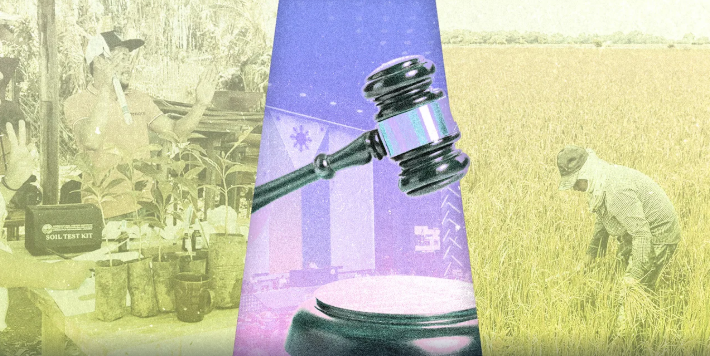Science & Technology
A Call to Future Senators to Rethink Philippine Agriculture

For those seeking a seat in the Senate, the path is clear: champion policies that support smart farming, invest in agricultural technology, and ensure that farmers are at the center of this transformation.
As the 2025 elections draw near, the future of Philippine agriculture stands at a pivotal crossroads. While traditional farming has long been the backbone of the country’s rural economy, innovative approaches now prove there’s a better, smarter way forward. The challenge and opportunity for those vying for senatorial positions is clear: Will they support and scale these innovations to benefit farmers nationwide?
From Ancestral Wisdom to Digital Farms
Filipino farmers have relied on time-honored methods to cultivate crops like rice, corn, and coffee for generations. But with climate change, fluctuating markets, and outdated infrastructure, many of these practices struggle to keep pace with the demands of a modern economy.
In places like Bukidnon, new approaches are showing what’s possible. Agritech startups, like Varacco, are introducing Internet of Things (IoT)-enabled nurseries and nano-biofertilizers, equipping farmers with tools that were once the domain of industrial agriculture giants. Imagine a farmer monitoring soil health through a mobile phone or using automated irrigation systems that optimize water use based on real-time data. These aren’t just technological gimmicks — they’re practical solutions leading to healthier crops, higher yields, and more sustainable farming.

Empowering Farmers, Not Replacing Them
The common fear with introducing advanced technology into agriculture is that it will sideline traditional farmers. But the reality on the ground tells a different story. Smart farming initiatives are designed to empower farmers, blending technology with indigenous knowledge.
The next time we sip a specialty coffee from the Philippines, remember: in its complex flavors lies not just the richness of the land, but the wisdom of a business approach that dares to put people first.
Without modernization and policy reforms, the industry will remain vulnerable, and consumers will continue to bear the brunt of rising prices
Farmers who have participated in these programs report transformative experiences. Young people, who once saw farming as an outdated profession, are now finding new purpose and pride in agriculture. They are learning to integrate their community’s traditions with modern tools, ensuring that the cultural heritage of farming is preserved while boosting productivity and sustainability.
From Skepticism to Success Stories
Naturally, many farmers were initially skeptical of these new approaches. After all, some past government or non-government programs often promised much but delivered little. But when technology is introduced thoughtfully — with hands-on training and community engagement — the results speak for themselves.
Farmers have found that simple, practical tools can revolutionize their work. IoT sensors, manufactured by Packetworx in the Philippines, for instance, help them understand their land better than ever before, while nano-biofertilizers reduce dependency on costly chemical inputs. These innovations aren’t just making farming easier, they’re making it more profitable and sustainable.
The Power of Partnerships
What’s driving this agricultural revolution isn’t just technology — it’s collaboration. Successful initiatives have brought together local governments, development authorities, private companies, and international organizations to create ecosystems that support farmers from the ground up.
These partnerships demonstrate that with the right support, farmers can lead the charge in transforming Philippine agriculture. But this raises an important question: Why are these changes being driven primarily by private initiatives and NGOs rather than national agricultural policies?
A Call to Future Senators
As candidates prepare their platforms, it’s time to consider how the government can play a more active role in scaling these innovations. Investing in smart farming isn’t just about technology — it’s about empowering communities, securing food sustainability, and ensuring that the agricultural sector remains a viable and thriving part of the economy.
Policymakers should look at these success stories as models for nationwide programs. How can IoT and biosensing technologies be integrated into national agricultural strategies? How can funding and resources be allocated to ensure that even the smallest, most remote farming communities have access to these tools?
The Road Ahead
The future of Philippine agriculture is already taking root in places like Bukidnon, where farmers are blending tradition with innovation to create a more sustainable, prosperous future. But this revolution shouldn’t be limited to a few regions or pilot programs. It’s a model that can and should be replicated across the country.
For those seeking a seat in the Senate, the path is clear: champion policies that support smart farming, invest in agricultural technology, and ensure that farmers are at the center of this transformation. The tools are already in place. Now, it’s time for leadership to scale them.
The next chapter of Philippine agriculture is waiting to be written. Will our future leaders rise to the challenge?
About the Author

Aries Asilo 2006
Ariestelo Asilo of Batangas, Philippines, started working at the age of six by selling sweepstakes tickets to make ends meet. He finished BS Nutrition and Master of Business Management at the University of the Philippines through the scholarship of US Peace Corps Alumni Foundation for Philippine Development. He worked for a UNICEF project on Anemia at UPLB and eventually taught food courses in college at the age of 21. Aries pioneers nutrition entrepreneurship through coffee production and research, and foodservice management. His interest in coffee started in 2012 when he saw coffee beans just scattered in the mountains of Lobo, Batangas. He co-wrote the feasibility study for Lobo’s Farm to Market Road that won a grant from World Bank to create an 8-km road benefitting 9,000 people of Lobo. He is the CEO and Co-founder of Varacco Inc., that focuses on coffee as a global commodity and a Filipino heritage icon. His goal on nutripreneurship is sustainable foodservice systems by progressive value addition leading to an increased productivity, profitability, and product quality. He is Speaker for both national and international conferences for his innovative model on Nutripreneurship. In January, 2020, Aries was selected as one of the 4 Filipinos who was awarded the Young Southeast Asian Leader Professional Fellow for Economic Empowerment by the American Councils for International Education and US Department of State. Asilo is 2020 UPLB Distinguished Alumnus for Nutrition Entrepreneurship and Community Nutrition. In 2021, Aries won a grant from ACDI-VOCA for his coffee research funded by USDA. His company Varacco also won as one of the 50 United Nations’ Best Small Business: Good Food for All out of 2,000 companies from 135 countries, given by United Nations Foods Systems Summit 2021 held in July, 2021. He also won as the winner of Conservation Optimist Southeast Asia Awards for Climate given by Eastwest Center USA. He is also one of the Swedish Institute Management Asia Fellows sponsored by the Swedish government. And finally, he is recognized as the The Outstanding Young Men Honoree for Social Entrepreneurship 2021 in the Philippines. (Source: LinkedIn)


